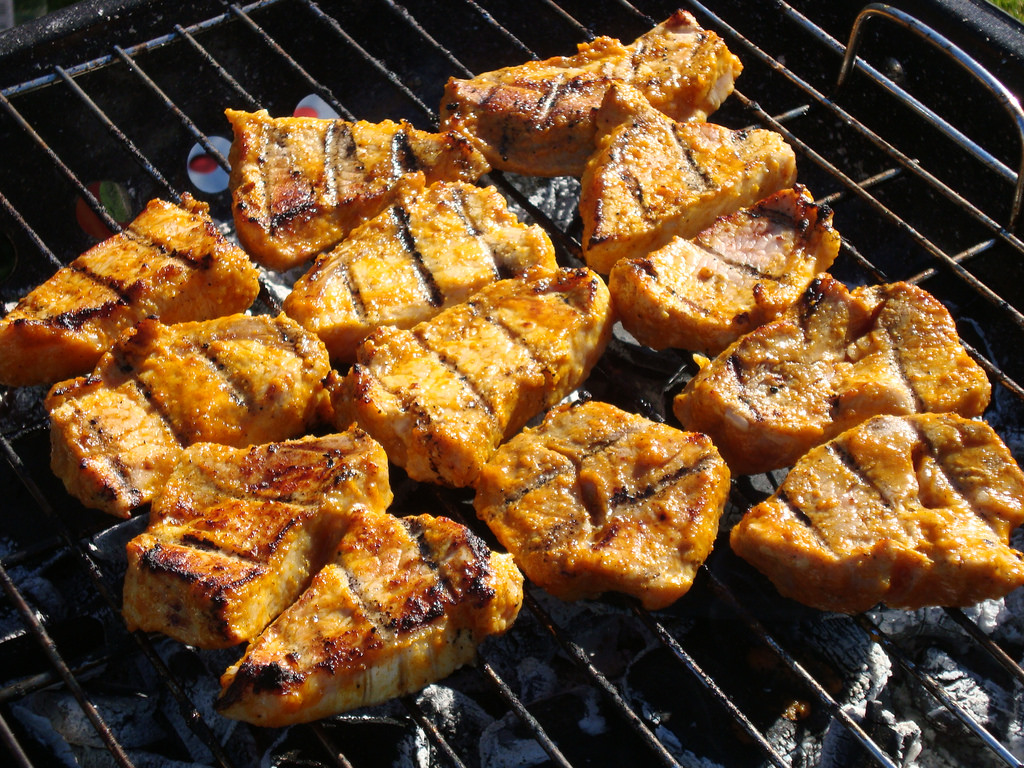Why Do Humans Cook Meat

At one point, long before there was an organic butcher serving top quality meats on order, or even before the taming of fire, our earliest human ancestors ate all of their food raw. When they had the good fortune to catch meat, they also had to consume it raw which limited how much they could benefit from the meat. Because raw food is more difficult for humans to digest, it limited the growth of the brains of these hominids. For the brain to grow larger it needs more calories and these calories were just not available when consuming raw food. When fire became a staple for early man things really changed and we developed into the cognitively developed species we are today. Here are the benefits humans derived from cooking their meat.
Digestability
“In order to be able to apply a sufficient number of calories to the brain, you have to be able to cook your food”, says Richard Wrangham, a primatologist and professor of biological anthropology at Harvard University. “Molecules are moving faster under the influence of heat; they are breaking up or shaking apart from each other, and that’s essentially what happens in digestion, the denaturating of proteins,” he said. “They lose their structure, and become more accessible.”
For your brain to grow, you have to get an abundance of calories. Raw food takes a lot more work for you to chew and digest, resulting in a net decrease in the amount of calories available for the rest of your cells. This limitation on the amount of calories you can get per day, is directly related to how many neurons you can grow in your brain.
Along with increasing the efficiency of our food intake and eliminating limits on growth, eating cooked meat would have increased the time humans could spend around the fire. Socializing, along with other cognitively demanding activities–like developing speech, social structure and civilization–would have required more brain power. And humans could afford to develop these more powerful brains, thanks to their improved, cooked diet.
Killing Harmful Bacteria
Raw meat, fish and eggs, can often contain dangerous bacteria, which can cause illness or death if consumed by humans. Throughout history there are countless of instances where bacteria from poorly cooked meat has caused epidemics. Common culprits have been salmonella and campylobacter in poultry, e.coli and listeria in beef, and tularemia in rabbits. Meat cooking methods today are generally built around destroying any harmful bacteria in the meat. This usually means insuring that the meat is cooked at a temperature of at least 70oC for a minimum period of time depending on the size and type of meat.
Taste
The fundamental reason for eating is to nourish the body and provide it with all of the nutrients it needs to function properly. Another human desire is for an appealing taste to the food. Cooking causes changes in the colour, flavour and texture of meat that most humans find more appealing. That deep, rich aroma, and golden brown color achieved when grass-fed lamb is cooked to perfection attracts us to the meat. And its flavor causes our taste buds to become aroused. Simply put, for meat, the cooking process gives it the characteristics we associate with edible and delicious food.
Today cooked meat is consumed the world over and is served in homes and restaurants in every country. You can enjoy it in dozens of styles and recipes from chicken stew, to pork tenderloins, to steaks made from perfectly aged beef. And you can feel good knowing that by eating cooked meat, you are improving human intelligence.










